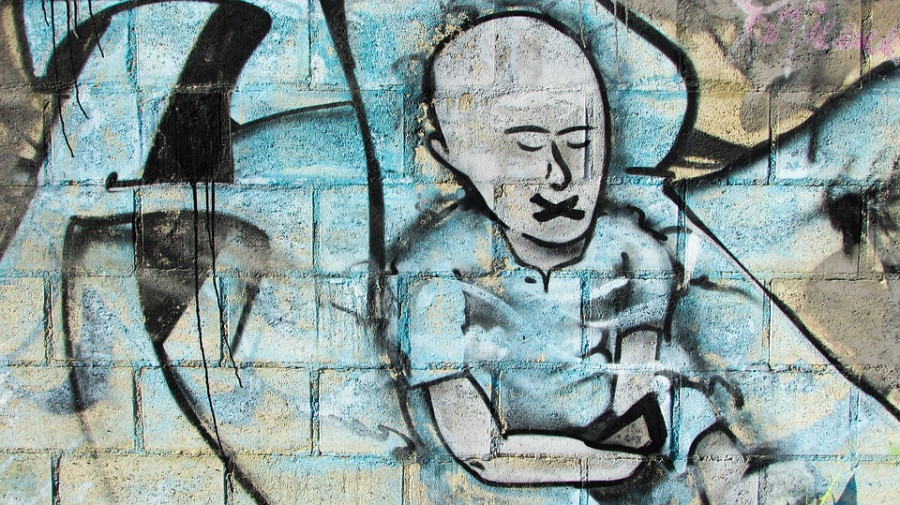Opinion
Delusion of democracy
Porn sites are banned using ‘filtering’ and ‘blocking’ mechanisms that prevent internet users from accessing a certain type of content. Blocking refers to preventing access to specific websites, domains, internet protocol (IP) addresses, protocols, and services that are blacklisted.
Bimal Pratap Shah
Sometime in the fall of last year, the Ministry of Communication and Information Technology banned digital pornography in Nepal using Article 121 of the Criminal Code, which states, ‘The Internet has made it easy to access sexually obscene materials, disrupted the social values and beliefs of Nepali society and is thus encouraging sexual violence and harmful practices.’ Following the ministry’s decision, the Nepal Telecommunications Authority instructed the 15 big internet service providers to prohibit sites containing sexual video content. Banning porn may be a good thing, and the government must have had good reasons for doing so. However, it is hard to believe that the ministry really believes porn sites, or any other website for that matter, can be banned in this day and age when citizens are increasingly more tech-savvy than governments.
Porn sites are banned using ‘filtering’ and ‘blocking’ mechanisms that prevent internet users from accessing a certain type of content. Blocking refers to preventing access to specific websites, domains, internet protocol (IP) addresses, protocols, and services that are blacklisted. Filtering is about using technology to block web pages based on traffic pattern protocols and keywords or on the basis of their perceived connection to content deemed inappropriate or unlawful. Filtering is implemented in the following ways: Blacklisting or whitelisting websites, keyword blocking, and deep packet inspection. Deep packet inspection involves deeper level analysis of data traffic and is commonly used to filter out viruses and spam, but can also be used for mass surveillance.
Closing windows
There are several ways filters can be applied. In Nepal’s case, the porn ban is implemented using filters at the national level. The technology and mechanism used to ban porn sites can also be used to ban websites such as Facebook, Twitter, YouTube, and blog sites. Authoritarian regimes usually discourage citizens from using the internet to voice their opinion against the government, and those who do not comply are often jailed, tortured or even killed. Governments inclined towards electoral authoritarianism go about formulating draconian laws with the intention of limiting free speech. For instance, Russian lawmakers recently passed bills that would introduce jail terms and fines for insulting the government online or spreading so-called fake news. Iran, Uganda, North Korea, Turkey and Bangladesh, to name a few, have banned social media, citing security-related reasons. The internet, designed to enable the free flow of information, has somehow begun to scare governments around the world.
Brilliant technical minds have developed tools that can hide people from government surveillance. The Onion Router is one such web browser that anonymises web traffic using the Onion Router network, making it easy to protect one’s identity online. Browsing the web over the Onion Router is slower, because web traffic is routed through its own network to anonymise it. It connects randomly to one of the publicly listed entry nodes, bounces that traffic through a randomly selected middle relay, and finally spits out your traffic through the third and final exit node.
The core principle of ‘Onion routing’ was developed in the mid-1990s by the United States Naval Research Laboratory with the purpose of protecting US intelligence communications online. In 1997, the Defense Advanced Research Projects Agency developed the Onion routing system. The main goal of the project was to protect the US government’s communication over the internet and proponents of democracy and free speech in backward-looking countries led by dictators. Many authoritarian regimes have banned the Onion Router browser to prevent citizens from reading, publishing and communicating outside their control. Researchers are always hard at work improving its anonymity properties. Russia, Saudi Arabia and Iran are doing everything at their disposal to prevent citizens from using the Onion Router. Venezuela is the newest addition to the list.
The Onion Router has become the digital equivalent of the constitutional First Amendment in the US. Reporters Without Borders has urged activists and journalists to adopt it as a vital online survival kit where state intimidation and censorship have become routine. The stalwarts of democracy believe online anonymity is the ultimate vehicle of human freedom, and being able to use the Onion Router is a prerequisite to the future of democracy.
Water off a duck’s back
Using the the Onion Router browser, one can easily view all contents that have been blocked for filtered. The government’s decision to ban porn must be commended. According to a University of Cambridge study, porn triggers brain activity in people with compulsive sexual behaviour-known commonly as sex addiction-similar to that triggered by drugs. However, good homework is necessary on the government’s part before implementing anything that is related to information technology so they can avoid embarrassing itself in front of 21st century tech-savvy citizens. The government’s efforts have been water off a duck’s back, and citizens are laughing up their sleeves. It is important to understand that it is almost impossible to ban sites when technology like the Onion Router is in the marketplace. More importantly, the government cannot make a rash response to a real policy dilemma. Educating citizens about the dangers of porn might be a good first step.
The Cold War world was separated into mainly two groups. The US led the group that included countries with democratic political systems. The Soviet Union led the group of countries with a communist political system. We still have two groups: Totalitarian states that have banned the Onion Router browser and democratically inclined ones that let citizens use it.
Shah was a consultant at the Office of the Prime Minister and Council of Ministers.




 9.51°C Kathmandu
9.51°C Kathmandu










